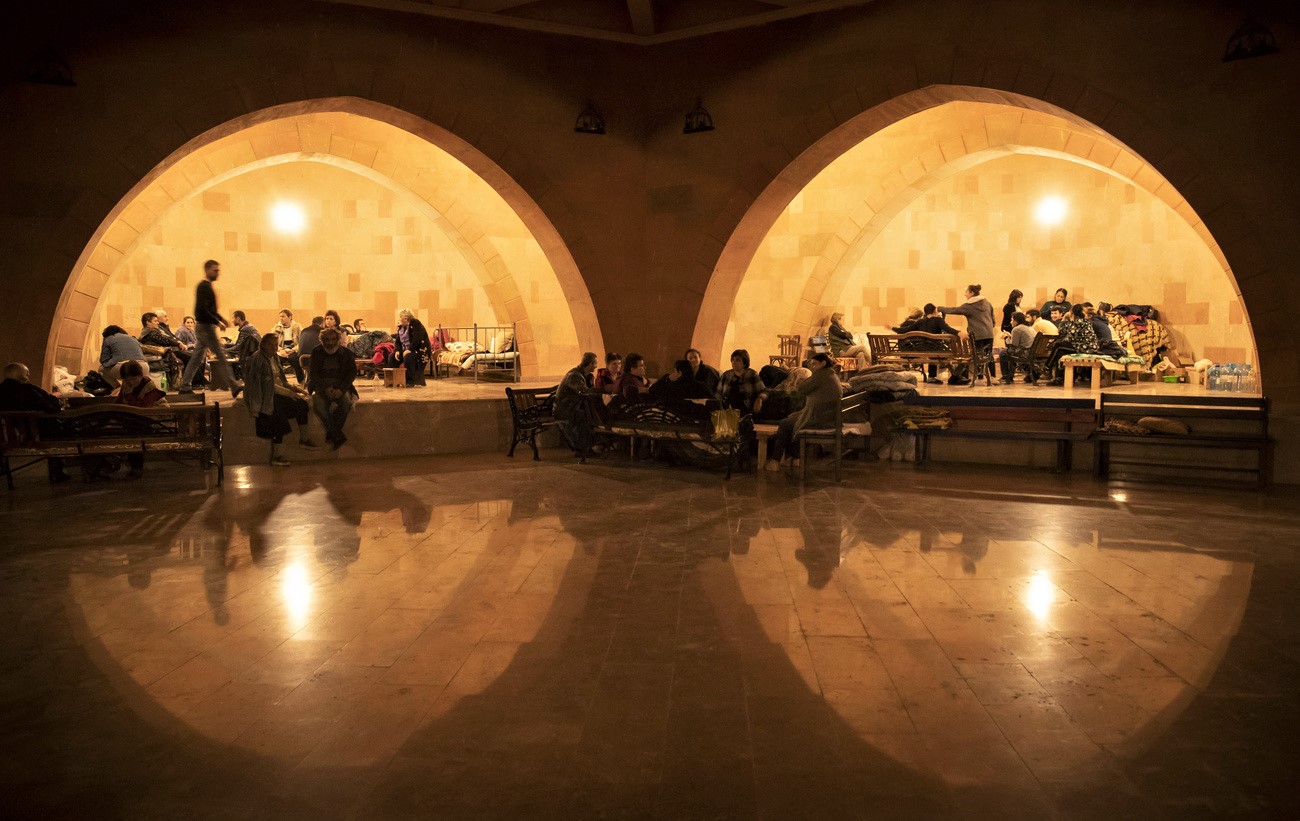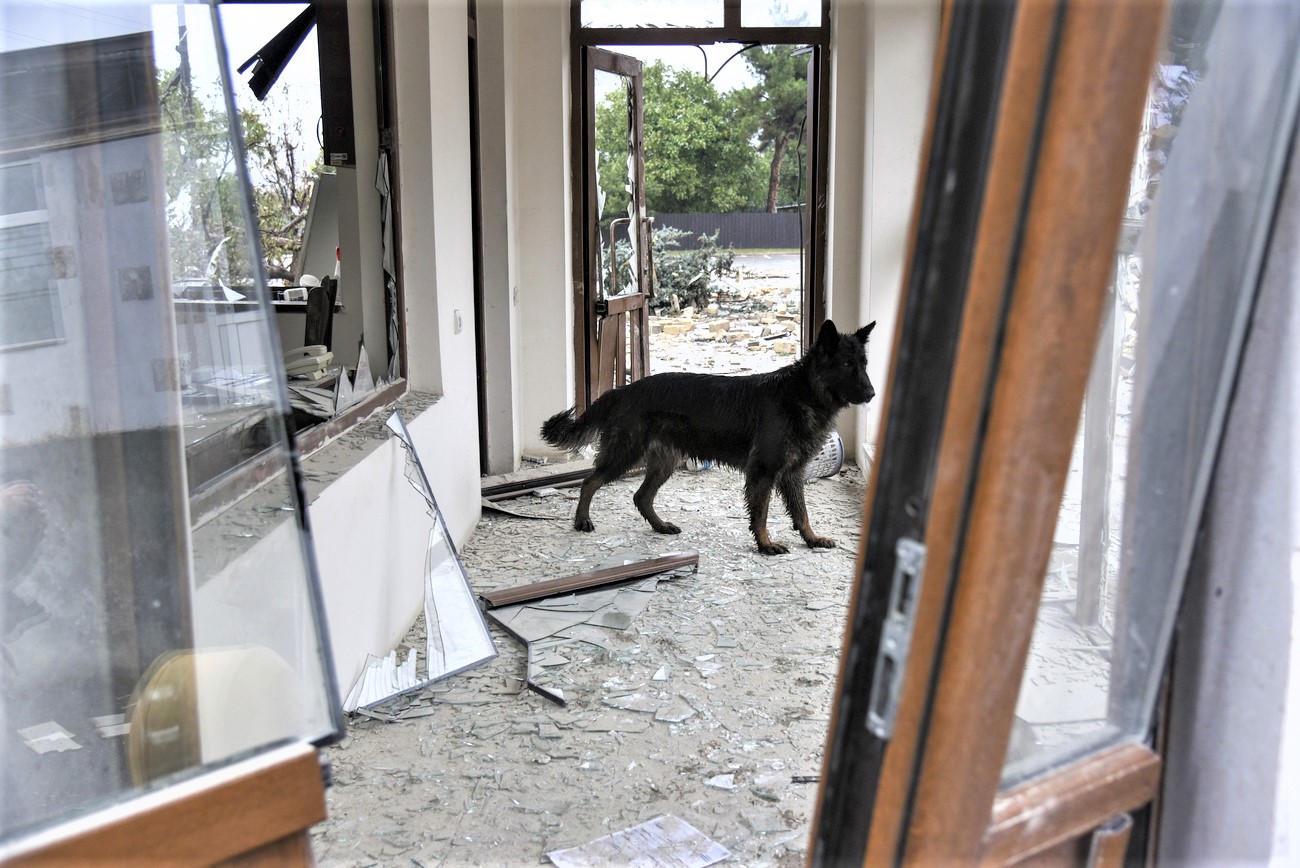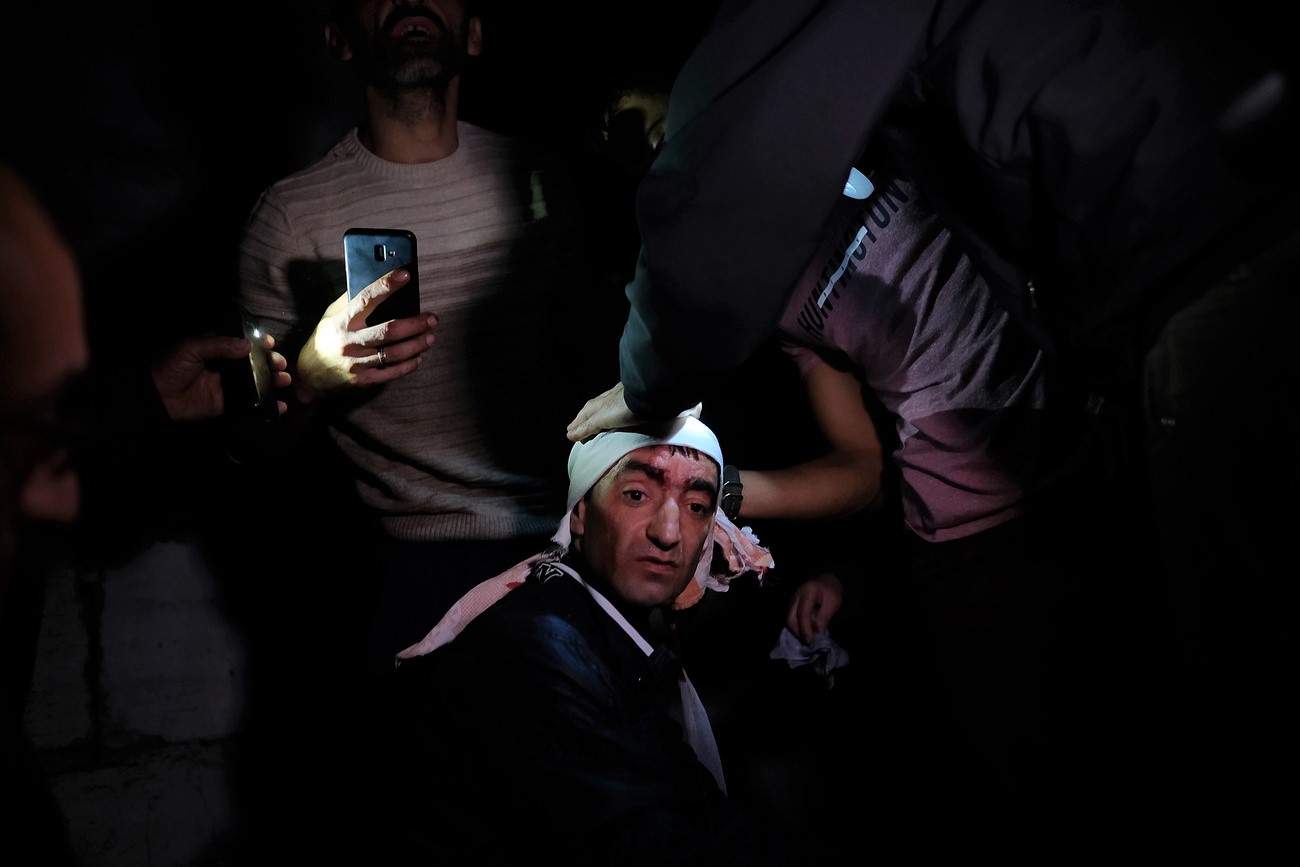
What’s the chance for diplomacy in Nagorno-Karabakh?

Since September 27, fighting between Armenians and Azerbaijanis in the Nagorno-Karabakh region has intensified. It is the rekindling of an old conflict in which diplomatic efforts, including those of Switzerland, have never led to a settlement.
This is the most serious violation of a 1994 ceasefire that followed a six-year war between the two sides. The number of dead and wounded is hard to know, as is the number of civilians fleeing the fighting. But the casualties are in the hundreds.
“We can already see the terrible impact that this escalation of the conflict is having on the civilian population,” said Gerardo Moloeznik on October 2. He is the head of a sub-delegation of the International Committee of the Red Cross located in Barda, Azerbaijan. The Geneva-headquartered ICRC warns that large numbers of people fleeing the conflict are likely, in addition, to fuel the spread of Covid-19 as winter approaches.
Ceasefire calls unheeded
The numerous calls to stop the fighting – whether from the UN Security Council, OSCE, Moscow, Paris, Washington or Bern – have so far failed to curb military escalation.
“The multilateral system and the big powers are realising once again that diplomacy has its limits,” says Keith KrauseExternal link, director of the Centre on Conflict, Development and Peacebuilding at the Graduate Institute of International and Development Studies in Geneva.

For its part, Switzerland has saidExternal link it is “ready to host meetings at the highest level” and that “the parties to the conflict must respect their obligations under international law, particularly international humanitarian law, and resume peace negotiations without conditions,” according to foreign ministry spokesman Georg Farago.
An unresolved conflict
The antagonism between Armenians and Azerbaijanis goes back a long way. The end of the First World War – marked in the region by the Armenian genocide perpetrated by Ottoman Turkey – allowed them to establish in 1918 two states on the ruins of the Russian Empire. Then incorporated into the Soviet Union, their territorial claims were frozen by Moscow. However, the claims of both sides were reborn in 1988 in the Soviet Union’s dying days with the first phase of the war in Nagorno-Karabakh, a region with an Armenian majority that declared independence in 1991. A ceasefire put an end to military operations in 1994, but periodic clashes have continued along the demarcation line.
“At the time of the break-up of the USSR, both Armenia and Azerbaijan formally committed themselves to respect the existing borders,” says Marcelo KohenExternal link, professor of international law at the Graduate Institute. “Nagorno-Karabakh was an autonomous region within Azerbaijan. And no member of the United Nations recognised its independence.”
This is far from the only conflict troubling the former Soviet republics, Kohen says. He points to the examples of Abkhazia and South Ossetia having declared independence from Georgia, Transnistria from the Republic of Moldova, the Crimea’s separation from Ukraine, and Donetsk and Luhansk declaring independence from Ukraine.
“In none of these situations has the principle of peoples’ right to self-determination been recognised for existing national minorities within the States concerned – even though these States have an obligation to respect the rights of minorities.”
The result was a series of conflicts where numerous world powers got involved.
Regional powers complicate the picture
While United States and European Union meddling in former Soviet states has often been denounced, including in Western media, they are not the only ones practising double standards, according to Kohen.
“Turkey supports the territorial integrity of Azerbaijan but violates this same principle in the Republic of Cyprus, supporting the so-called Turkish Republic of Northern Cyprus,” he says. “Some Western political leaders call loud and clear for the respect of the territorial integrity of Ukraine but have ignored it in relation to Serbia in Kosovo. Russia has defended it for Serbia but ignored it for Ukraine.”
Krause says that Turkey’s appearance on the scene and its increasingly strong-arm diplomacy confirm a lasting trend where “the regional powers have more room for manoeuvre than in the past to get involved in conflicts and increase their sphere of influence.”
This Turkish interventionism poses an additional problem for two institutions active in the region. “One is the OSCE [Organisation for Security and Cooperation in Europe], which has so far failed to revive talks,” says political science professor Krause. “The other is NATO, of which Turkey is a member. With its offensive policy, we are approaching a breaking point within NATO.”
What chance for diplomacy?
So how can peace be achieved in Nagorno-Karabakh? Marcelo Kohen thinks the solution lies in withdrawal of foreign interference, and an end to hostilities.
“The OSCE is the appropriate framework for carrying out negotiations, as in the past,” he says. Kohen also stresses the importance of respect for international humanitarian law, the territorial integrity of states, and the need to grant broad autonomy in Nagorno-Karabakh under international guarantee.

Farago of the Swiss Foreign Ministry recalls the Zurich Protocols, an agreement signed by Ankara and Yerevan in 2009 to restore diplomatic relations between Turkey and Armenia and reopen the common border.
“To date, the Zurich Protocols are the only documents that contain concrete proposals for the normalisation of relations between Armenia and Turkey and that have been signed by representatives of the Armenian and Turkish governments,” he says. “However, ratification by the parliaments of Yerevan and Ankara has not yet taken place.”
A first meeting on Nagorno-Karabakh was held in Geneva on Thursday, under the auspices of the OSCE’s Minsk group, co-presided by France, the US and Russia. And at the invitation of Russian President Vladimir Poutine, the foreign affairs ministers of Armenia and Azerbaijan began talks in Moscow on Friday on the separatist region.

In compliance with the JTI standards
More: SWI swissinfo.ch certified by the Journalism Trust Initiative






























Join the conversation!